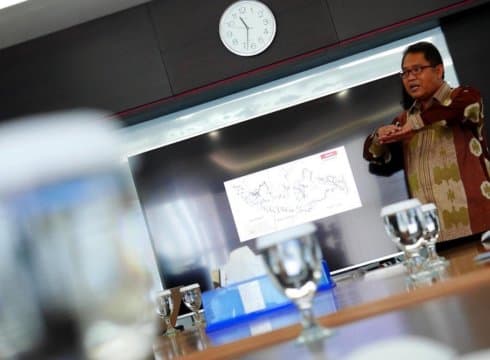The Roadmap Will Regulate Technology As Well As Provide Guidelines For Taxation, Logistics And More
Inc42 Daily Brief
Stay Ahead With Daily News & Analysis on India’s Tech & Startup Economy
Indonesia President Joko “Jokowi” Widodo has finally inscribed the long awaited ecommerce roadmap earlier this month. The main objective of the roadmap is to boost ecommerce sector growth, with the long term goal of stimulating country’s overall digital economy.
According to the Central Statistics Bureau report, Indonesia’s economy grew only 5.02% Y-o-Y in Q3 2016, compared to 5.19% in the Q2 2016. This continued for the full year, and Indonesia recorded a final GDP of 5.02% for the year 2016, missing the industry forecasted target of 5.2%.
It is believed that the push for the digital economy with the ongoing reforms in the ecommerce sector will turn on a new growth engine for Indonesia. The roadmap will not only regulate technology but will also solve for issues such as logistics, cyber securities, taxation, human resources development and consumer protection.
“The country needed ecommerce to empower the underprivileged. The problem is, we do not have a proper roadmap for ecommerce development that will act as a reference for stakeholders who want to explore the sector,” said the Coordinating Minister of Economic Affairs Darmin Nasution in a media statement.
The Indonesian government first announced finalised plans to introduce the national ecommerce roadmap in January 2016. Later, in April 2016, Jokowi urged his ministries to accelerate the progress of the ecommerce roadmap. Further, in November 2016, Jokowi also proposed ecommerce roadmap as his 14th economic reform.
Towards A Digital Economy: Key Reforms And Provisions Of Indonesia Ecommerce Roadmap
As per an earlier report by Digital News Asia, eight ministries and institutions are included in the formulation of the ecommerce roadmap. This included the Ministry of Communication and Information Technology (MOCIT), Central Bank, Coordinating Ministry of Economic Affairs and Ministry of Finance.
The roadmap will provide guidelines for the country’s digital economy sector, as stated by Communication and Information Minister Rudiantara.
As mentioned in the Digital News Asia report, Indonesia Ecommerce Roadmap has proposed eight provisions which include:
- Funding: Micro credit programmes will be run to provide support to app developers, and business incubator. Startup mentorships, universal service obligation (USO) funds for digital small and medium enterprises (SMEs) and ecommerce startups, angel investment, seed capital from venture capital as well as crowd-funding will also be included.
- Taxation: The tax rates will get lowered for local startup investors. Taxation procedure will be eased for ecommerce ventures with a total turnover of $357,191 and below per year.
- Consumer protection: The government will regulate electronic transactions in order to allow for transactions and government spending through ecommerce and develop a national payment gateway.
- Education and human resources: The government will start a national ecommerce awareness campaign along with a national incubation programme, and ecommerce education programme for all stakeholders.
- Logistics: Ecommerce players will be allowed to leverage on the national logistics system (Sislognas). Local and national courier companies are to be strengthened and logistics routes from rural areas to cities developed.
- Communication: Strengthen communications infrastructure through national broadband development.
- Cyber Security: The government will set up a national surveillance and ecommerce monitoring system, offer education on ecommerce cyber threats, and standardise data collection.
- Management: Form an operating management structure to manage, monitor, and evaluate the implementation of the ecommerce roadmap.
Apart from these, the government will also work towards implementation of the electronic-based National Trading System 2016-2019.
“One of the issues in the road map also relates to the payment system by implementing the National Payment Gateway (NPG), which will be under the supervision of Bank Indonesia,” Rudiantara said. He further added, “As part of the roadmap’s initiatives, the ministry is currently designing a measure to record online transaction information from the marketplace, in coordination with the Finance Ministry, Central Statistics Agency (BPS) and Bank Indonesia.”
The Indonesia’s ecommerce market is forecasted to reach $130 bn by 2020. The government is also working towards its agenda to nurture 1,000 technopreneurs with a total business valuation of $10 Bn by the same year. Also, with time, the government has adopted latest apps and technology to boost its working mechanism. In such times, President Jokowi’s initiative to fast forward the implementation of ecommerce roadmap can certainly prove fruitful in further giving Indonesia a much required digital push.
(The development was reported by The Jakarta Post)
{{#name}}{{name}}{{/name}}{{^name}}-{{/name}}
{{#description}}{{description}}...{{/description}}{{^description}}-{{/description}}
Note: We at Inc42 take our ethics very seriously. More information about it can be found here.


